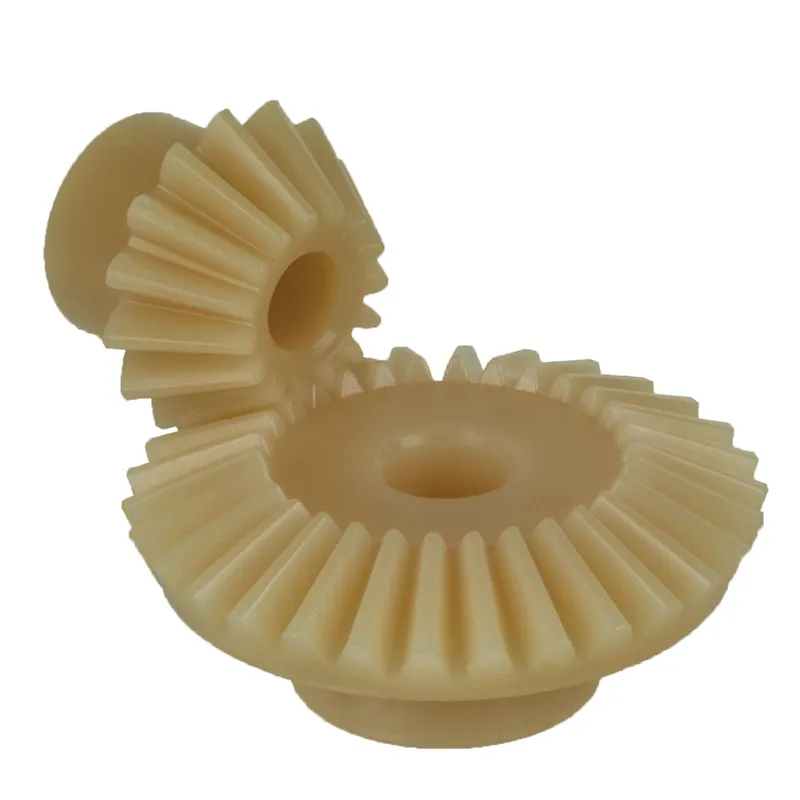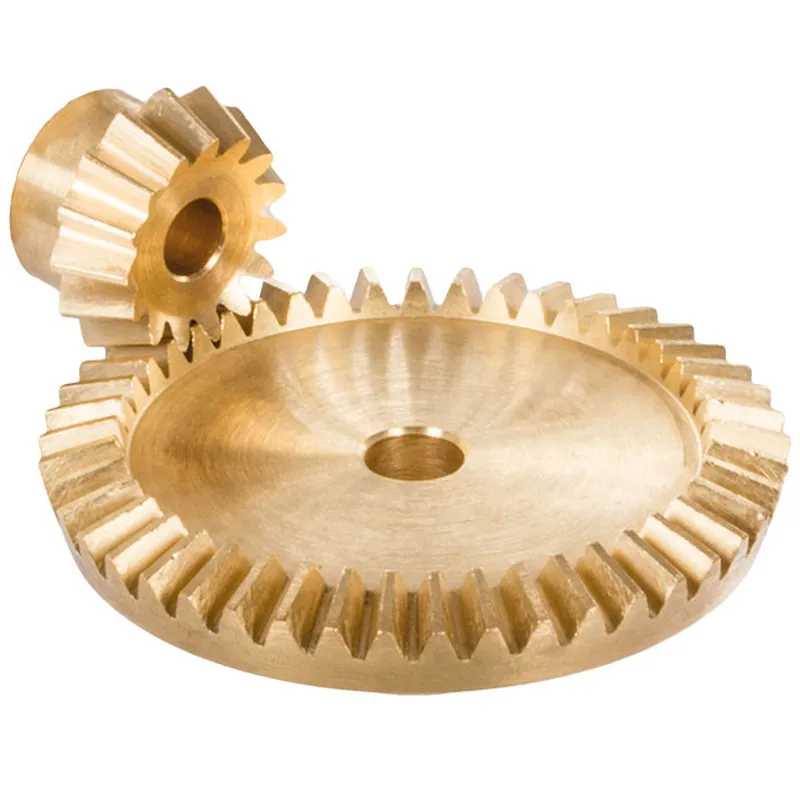Steel Spiral Bevel Gears Ratio 1.5:1 Spiral Tooth System
The steel spiral bevel gears ratio 1.5:1 spiral tooth system refers to a pair of gears designed with spiral-shaped teeth that mesh at an angle, typically used to transmit power between non-parallel shafts (often at a 90-degree angle). The spiral tooth design ensures smooth, quiet operation by gradually engaging the teeth, which reduces noise and vibration compared to straight bevel gears.
The steel spiral bevel gears ratio 1.5:1 spiral tooth system refers to a pair of gears designed with spiral-shaped teeth that mesh at an angle, typically used to transmit power between non-parallel shafts (often at a 90-degree angle). The spiral tooth design ensures smooth, quiet operation by gradually engaging the teeth, which reduces noise and vibration compared to straight bevel gears.
The "1.5:1 ratio" indicates that for every 1.5 revolutions of the driving gear, the driven gear completes 1 revolution. This specific ratio is ideal for applications requiring moderate speed reduction or torque amplification. Made of steel, these spiral bevel gears are durable, capable of withstanding high loads, and resistant to wear, making them suitable for industrial machinery, automotive differentials, and aerospace systems. Their precision engineering ensures efficiency, reliability, and longevity.
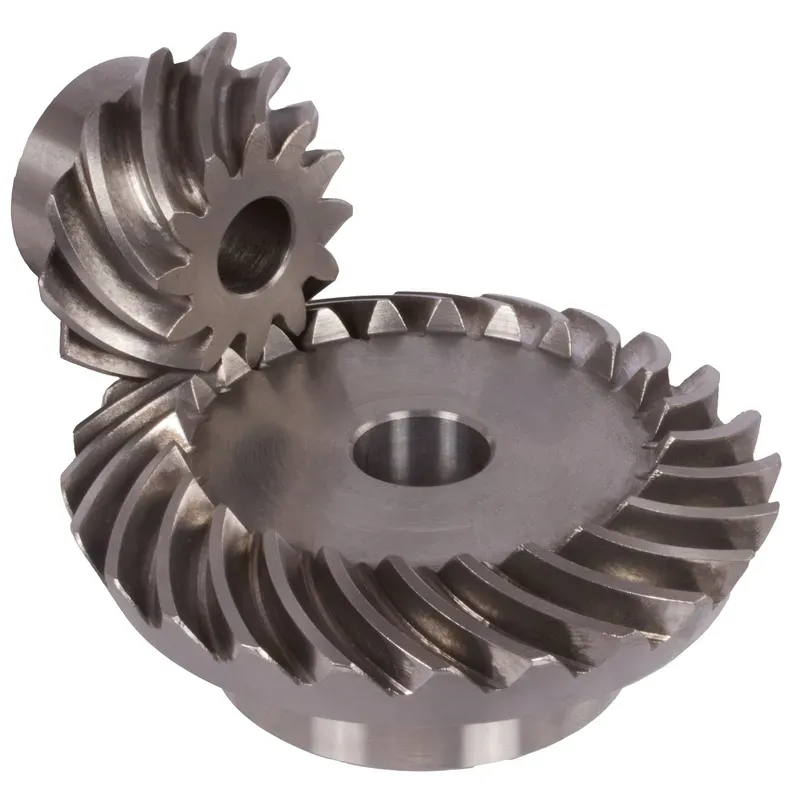
Steel Spiral Bevel Gear Ratio 1.5:1
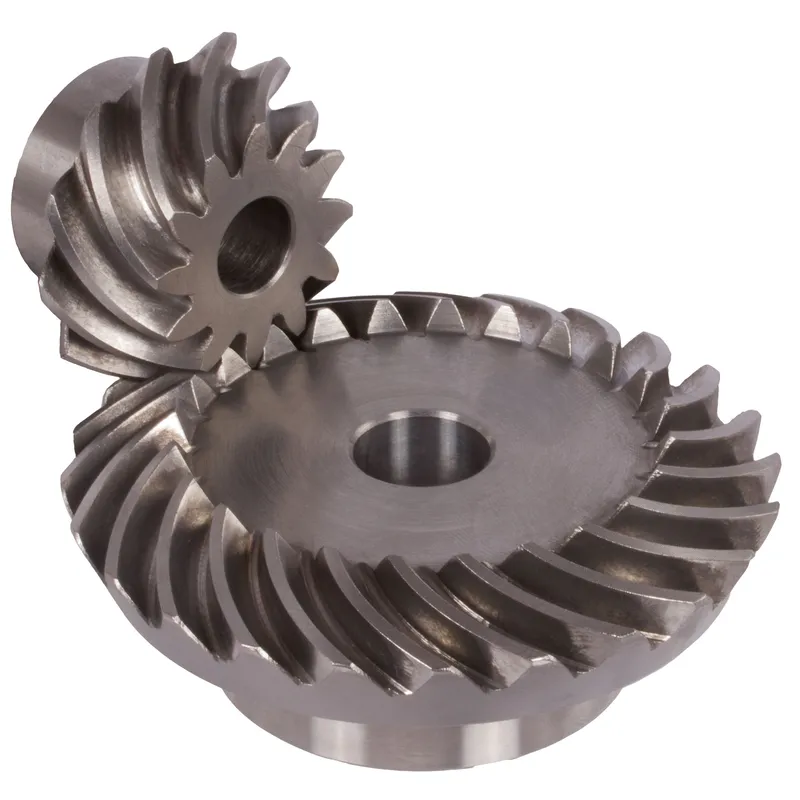 | 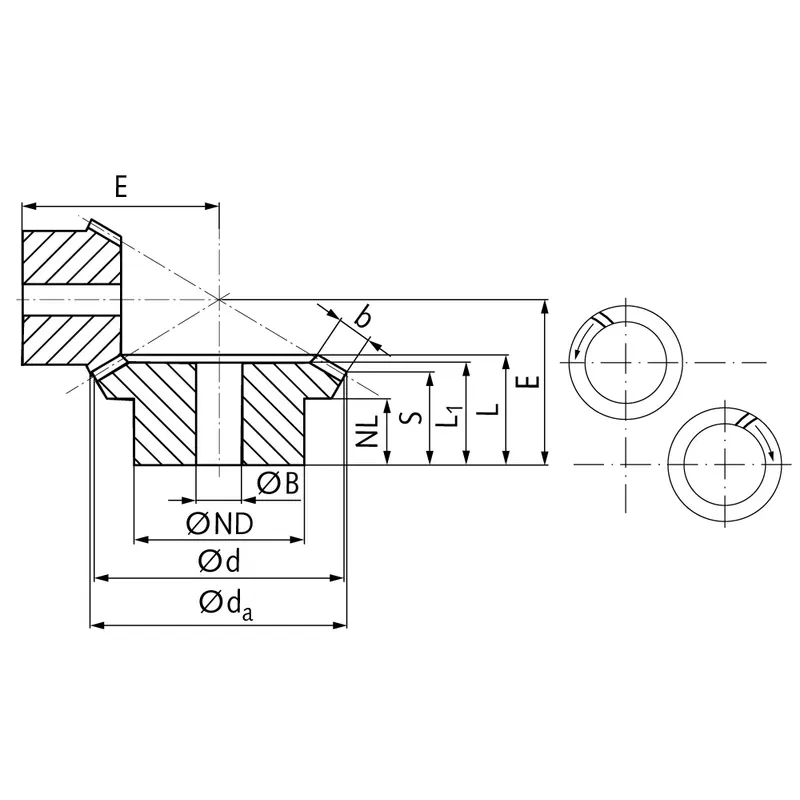 |
| Module | Number of teeth | da | d | ND | NL | L1 | L | S | b | BH7 | E | Torque* | Weight |
| mm | mm | mm | mm | mm | mm | mm | mm | mm | mm | Ncm | g | ||
| 0,6 | 22 | 20,8 | 19,8 | 17 | 7 | 13 | 14,3 | 8,5 | 7 | 6 | 23 | 2,2 | 116 |
| 0,6 | 33 | 30,3 | 29,7 | 20 | 8 | 14 | 15,5 | 11,6 | 7 | 8 | 21 | 3,3 | 116 |
| 1 | 20 | 31,6 | 30 | 25 | 8 | 17 | 18,3 | 10,0 | 10 | 8 | 32 | 8,1 | 166 |
| 1 | 30 | 46,3 | 45 | 30 | 8 | 17 | 19,5 | 14,0 | 10 | 10 | 28 | 12,2 | 166 |
| 1,3 | 16 | 34,3 | 32 | 25 | 8 | 18 | 19,9 | 10,7 | 11 | 8 | 34 | 11,9 | 220 |
| 1,3 | 24 | 49,4 | 48 | 30 | 8 | 18 | 21,1 | 15,0 | 11 | 10 | 30 | 17,9 | 220 |
| 1,5 | 16 | 37,8 | 35,8 | 30 | 8 | 17 | 18,8 | 10,5 | 10 | 10 | 36 | 14,3 | 273 |
| 1,5 | 24 | 54,4 | 52,8 | 35 | 8 | 17 | 21,1 | 15,6 | 10 | 10 | 32 | 21,5 | 273 |
| 2 | 16 | 53,0 | 50 | 35 | 6 | 18 | 21,37 | 12,8 | 11 | 10 | 48,45 | 41,0 | 561 |
| 2 | 24 | 76,0 | 75 | 39 | 15 | 24 | 27,53 | 21,7 | 11 | 16 | 45 | 61,5 | 561 |
| 2,5 | 16 | 67,0 | 64 | 40 | 14 | 25 | 31,89 | 19,9 | 16 | 16 | 65 | 84 | 1300 |
| 2,5 | 24 | 97,5 | 96 | 54 | 14 | 23 | 28,66 | 20,1 | 16 | 20 | 50 | 126 | 1300 |
| 3 | 16 | 79,0 | 76 | 50 | 15 | 28 | 35,71 | 21,9 | 19 | 20 | 75 | 160 | 1682 |
| 3 | 24 | 115,0 | 114 | 64 | 18 | 28 | 34,69 | 24,8 | 19 | 25 | 60 | 240 | 1682 |
Advantages of Steel Spiral Bevel Gears
- High Torque Capacity
Spiral bevel gears are designed to handle high torque loads efficiently. Their unique conical shape and precise tooth geometry allow them to transmit significant amounts of power between intersecting shafts. This makes them ideal for heavy-duty applications such as industrial machinery and automotive systems. - Compact Design
The compact nature of steel bevel gears enables them to transmit power between non-parallel shafts in confined spaces. Their conical geometry allows for efficient direction changes of rotational motion. This makes them a preferred choice for systems requiring space-saving solutions without compromising performance. - Smooth and Quiet Operation
Bevel gears, particularly spiral bevel gears, offer smoother and quieter operation due to their advanced tooth geometry. The gradual engagement of curved teeth reduces vibration and noise. These features are especially beneficial in applications where noise reduction is critical, such as automotive drive systems. - Versatility in Shaft Angles
Spiral bevel gears can accommodate a wide range of shaft angles. Though the most common configuration involves a 90-degree angle, they are adaptable to other angles, providing engineers with design flexibility. This versatility makes bevel gears suitable for diverse mechanical setups. - Durability and Longevity
Bevel gears are often manufactured from high-grade materials like steel, which enhances their durability. They can withstand high loads and resist wear over time. This ensures their reliability and longevity, even in demanding environments such as heavy machinery or aerospace systems. - Efficient Power Transmission
Steel bevel gears are highly efficient at transmitting power between shafts. Their precise tooth design minimizes energy loss during operation. This efficiency not only improves overall system performance but also reduces operational costs by conserving energy in mechanical systems.
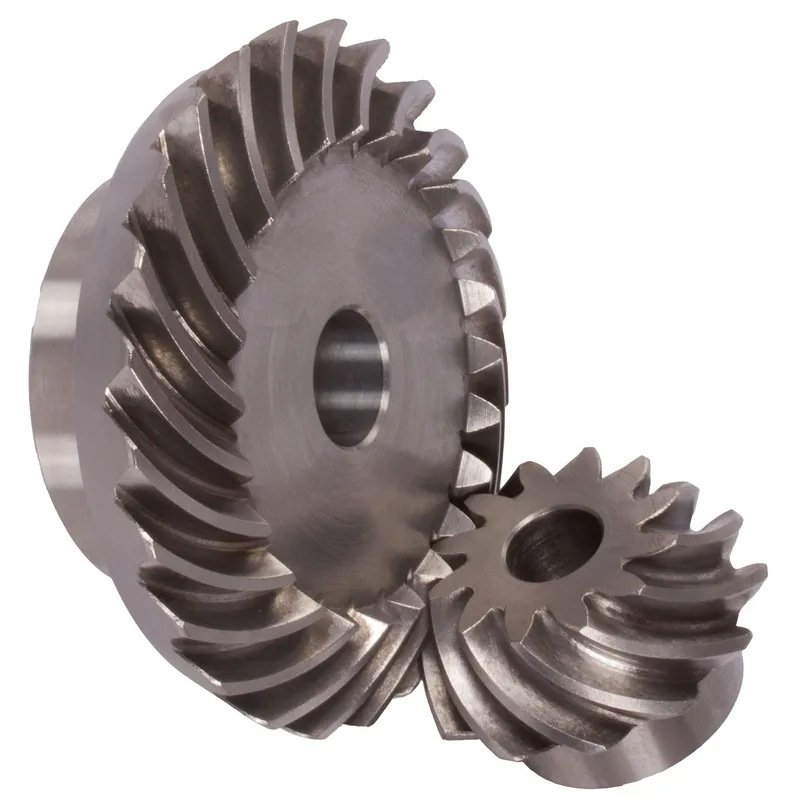
Bevel Gear Material Selection
1. Carbon Steel
Carbon steel, like AISI 1045 or 1060, is widely used for spiral bevel gears due to its high strength, toughness, and affordability. It offers good machinability and can be heat-treated for enhanced hardness. Ideal for heavy-duty applications like automotive differentials, it may require coatings to resist corrosion in harsh environments.
2. Stainless Steel
Stainless steel, such as AISI 304 or 316, provides excellent corrosion resistance, making it suitable for spiral bevel gears in marine or chemical environments. Its strength is lower than carbon steel but sufficient for moderate loads. It’s costly and harder to machine, requiring specialized tools.
3. Alloy Steel
Alloy steels, like 42CrMo4 or 8620, are preferred for high-performance spiral bevel gears due to their superior strength, wear resistance, and fatigue properties. Heat treatment enhances durability, making them ideal for demanding applications like aerospace or heavy machinery, though they are more expensive.
4. Cast Iron
Cast iron, often gray or ductile, is used for spiral bevel gears in low-speed, high-torque applications like industrial machinery. It offers good wear resistance and vibration damping but is brittle and heavy, limiting use in dynamic or high-speed systems.
5. Bronze
Bronze, typically phosphor bronze, is chosen for spiral bevel gears in applications requiring low friction and corrosion resistance, like marine or food processing equipment. It has moderate strength, good wear properties, and self-lubricating qualities but is costly and softer than steel.
6. Brass
Brass, a copper-zinc alloy, is used in spiral bevel gears for light-duty applications like instruments or small machinery. It offers good corrosion resistance and machinability but has lower strength and wear resistance, making it unsuitable for high-torque or high-speed systems.
7. Aluminum
Aluminum, such as 6061 or 7075, is used for lightweight spiral bevel gears in applications like robotics or aerospace. It offers good corrosion resistance and machinability but has lower strength and wear resistance, requiring coatings or anodizing for durability.
8. Plastic
Plastics like nylon or acetal are used for spiral bevel gears in low-load, non-critical applications like consumer electronics or small appliances. They are lightweight, corrosion-resistant, and quiet but have low strength and heat resistance, limiting use in high-torque or high-temperature environments.
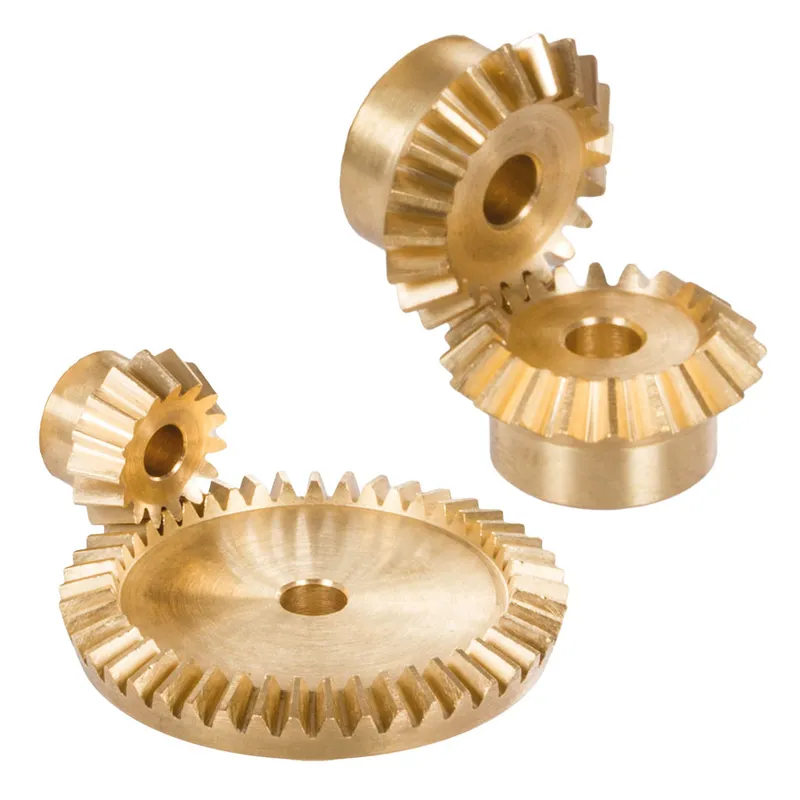 | 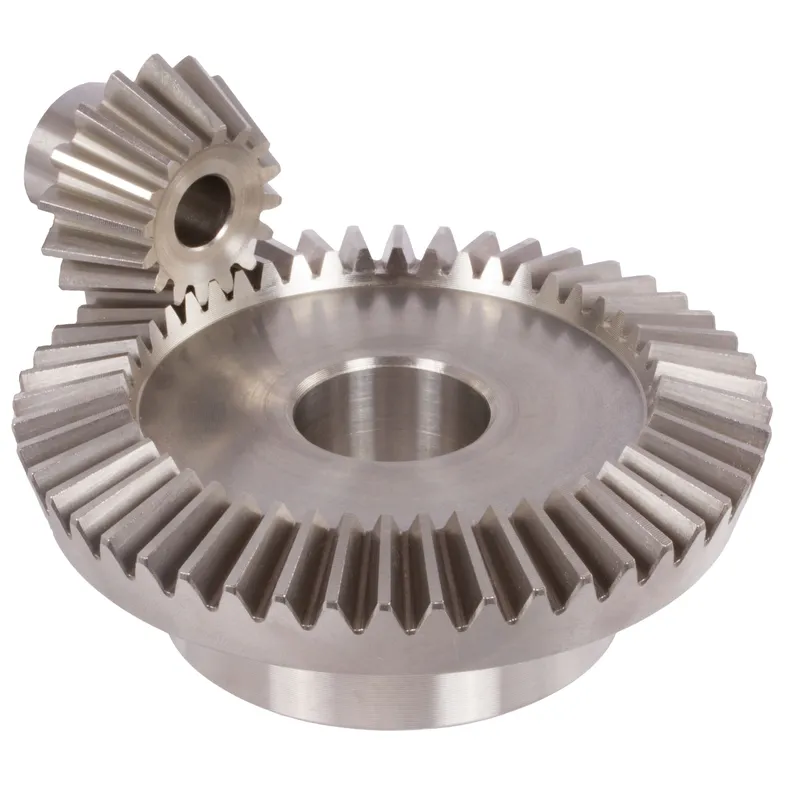 |
| Brass Bevel Gears | Stainless Steel Bevel Gears |
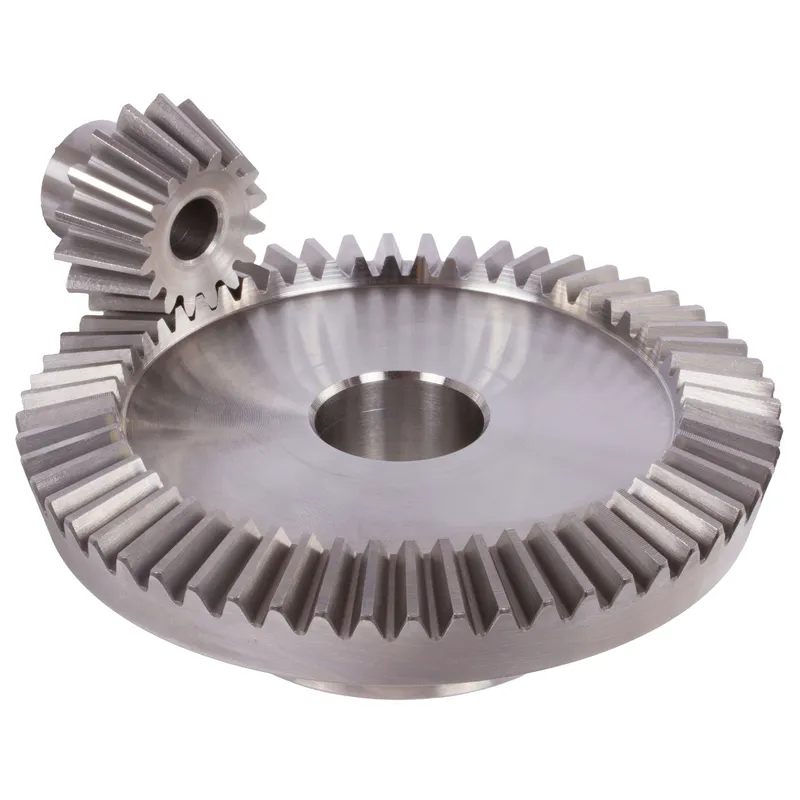 | 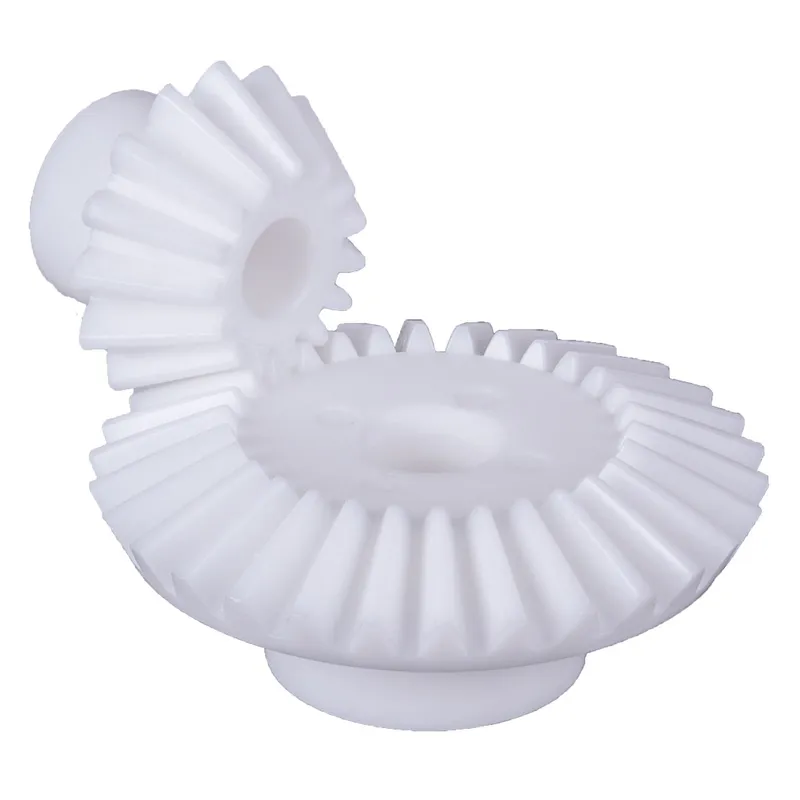 |
| Steel Bevel Gears | Plastic Bevel Gears |
Select the Right Spiral Bevel Gear for Applications
- Load Capacity Requirements
Evaluate the torque and load capacity needed for the application. Spiral bevel gears designed for heavy-duty systems must be made from durable materials like alloy steel or carbon steel. For lighter applications, materials like brass or plastic may suffice due to their cost-effectiveness. - Operating Speed and Efficiency
Consider the operating speed of the system and the efficiency required. Spiral bevel gears with precise manufacturing tolerances and advanced tooth geometries are ideal for high-speed operations. High-quality materials and finishes improve performance by minimizing energy losses and reducing wear during prolonged use. - Environmental Conditions
Assess the environmental factors, such as exposure to moisture, chemicals, or extreme temperatures. Stainless steel or bronze spiral bevel gears are suitable for corrosive or wet environments, while plastic gears are better for lightweight applications in non-corrosive, temperature-controlled conditions. - Noise and Vibration Levels
Determine the noise and vibration restrictions of the application. For quiet and smooth operations, spiral bevel gears with curved teeth, such as those made from brass or plastic, are preferred. These are suitable for industries like robotics, medical devices, and automotive systems. - Shaft Angle and Space Constraints
Examine the shaft angle and available space in the system. Spiral bevel gears are versatile and can accommodate various shaft angles, usually at 90 degrees. Compact designs are ideal for applications where space is limited, such as in aerospace or robotics. - Cost and Longevity
Balance the cost with the expected lifespan of the gear. While materials like carbon steel and alloy steel offer high durability for demanding applications, they are costlier. For less critical systems, plastic or cast iron gears provide a more economical solution at a lower cost.
 | 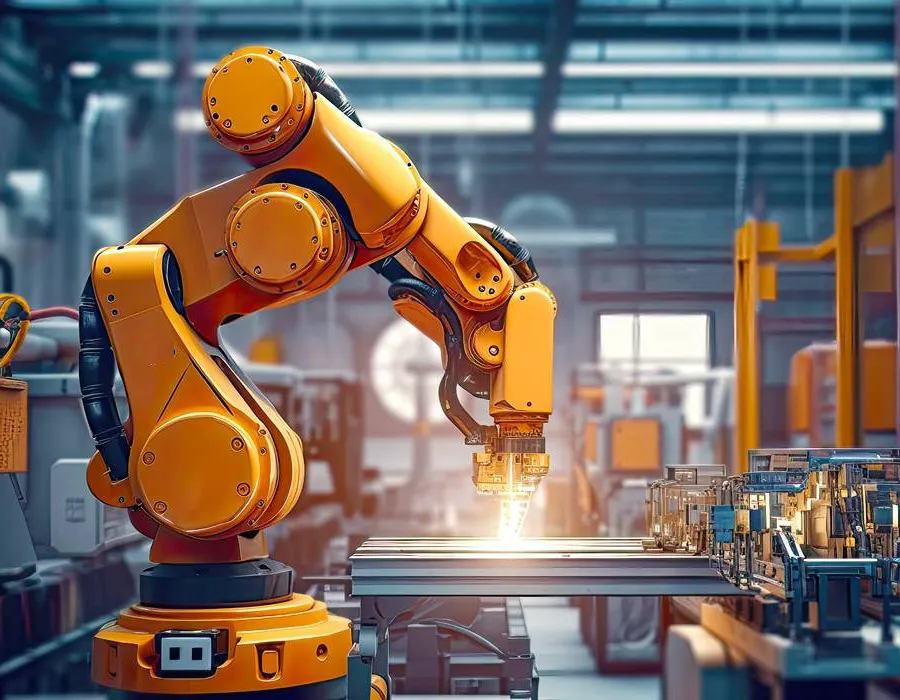 |
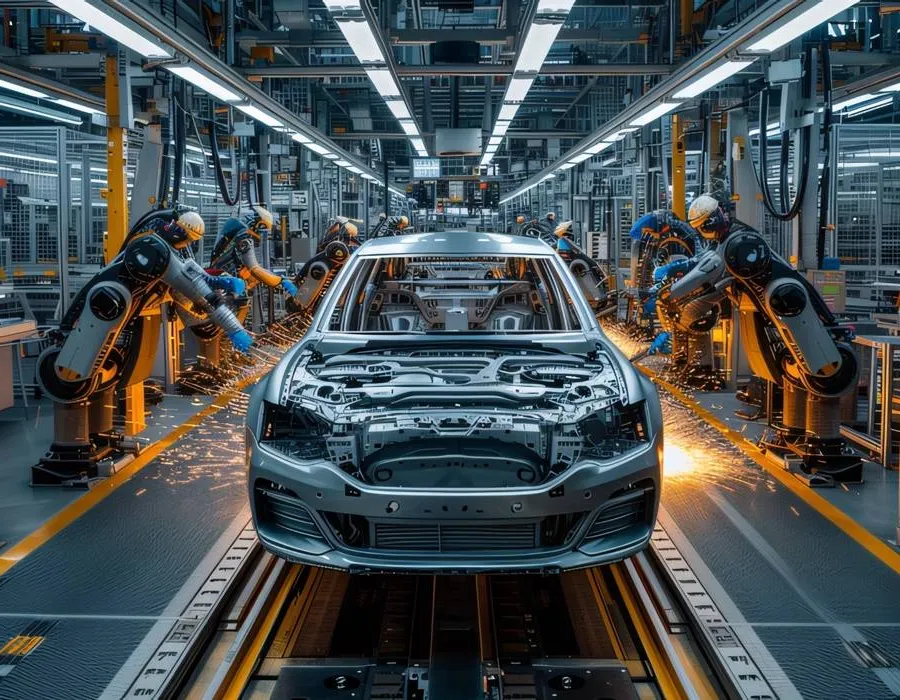 | 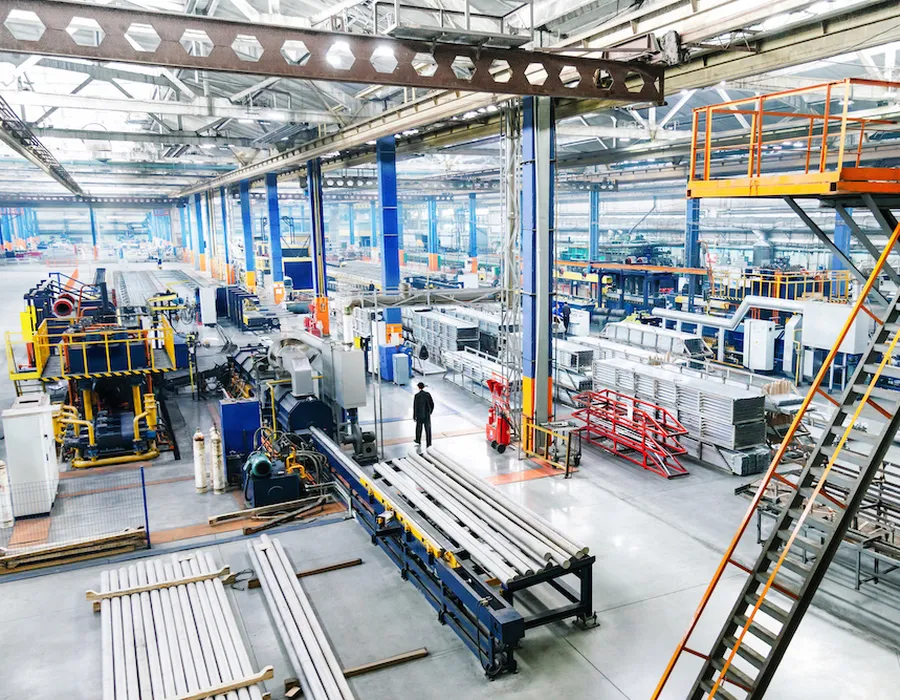 |
Additional information
| Edited by | Yjx |
|---|
